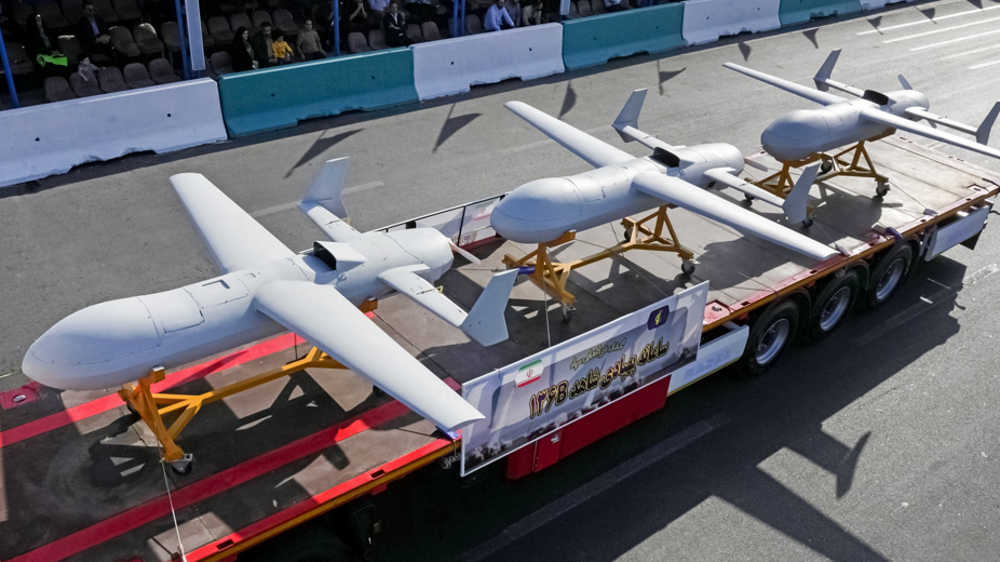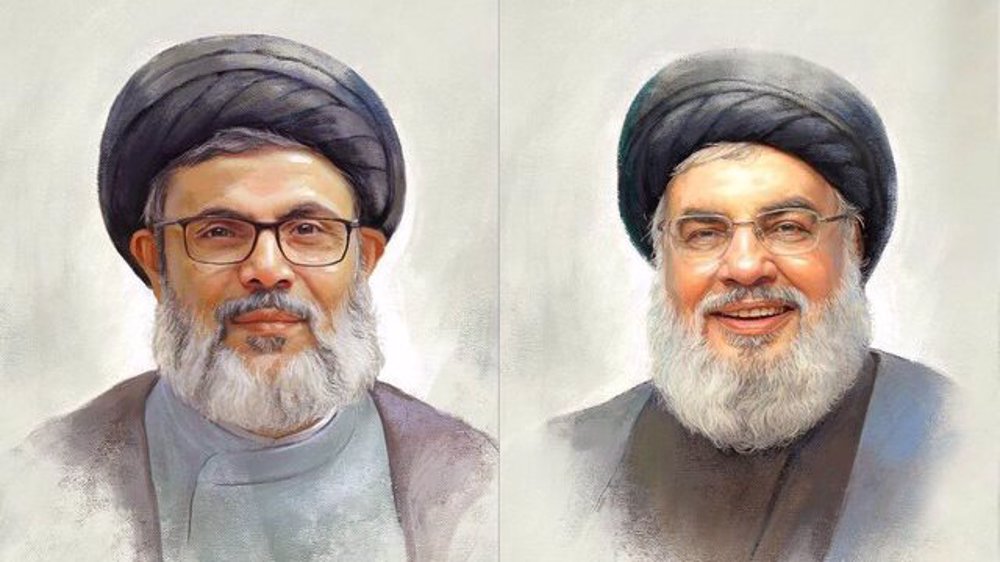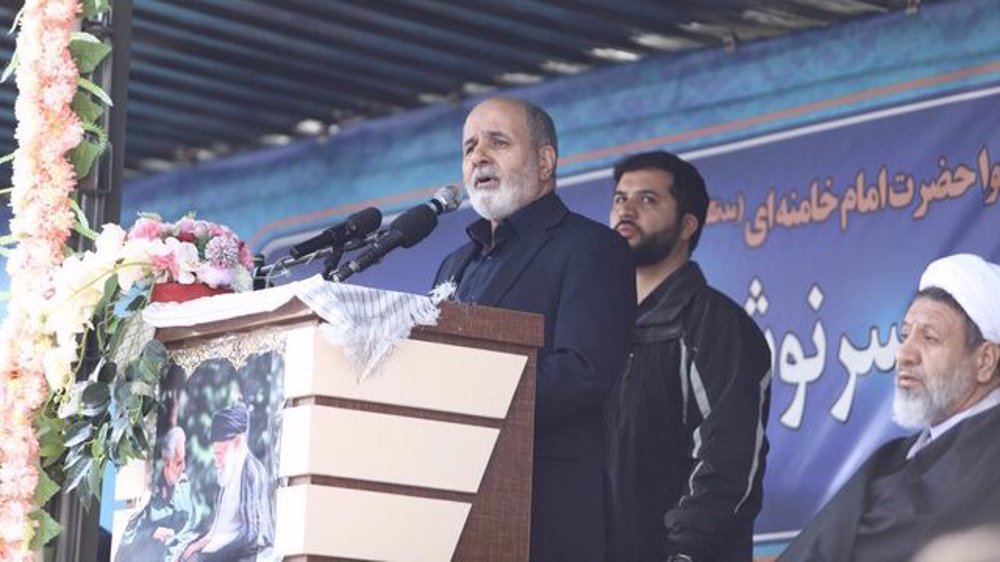Iranians vote in parliamentary, Assembly of Experts elections
Iranians have voted in parliamentary and Assembly of Experts elections, with Leader of the Islamic Revolution Ayatollah Seyyed Ali Khamenei calling on the electorate to turn in big numbers to please friends and disappoint enemies.
The polls opened across Iran at 8 a.m. local time (0430) on Friday with more than 61 million people eligible to vote across the country.
Ayatollah Khamenei cast his ballot at a polling station in Tehran in the first minutes of voting.
“We ask the Almighty God to make today a happy day for the Iranian nation and that the results of the efforts of our dear people and those involved in the various issues of the elections may reach the desired results and benefit the Iranian nation," he said after voting.
“Our dear nation should know that today the eyes of many people in the world, both individuals and politicians and those who hold prestigious national and political positions, are on Iran and you.
Leader of the Islamic Revolution Ayatollah Khamenei urged Iranian people to make Iran's friends happy and disappoint the country's ill-wishers by voting in today's elections. #IranElections2024 pic.twitter.com/t8bF1JEB4l
— Iran Elections On PressTV (@PressTVElection) March 1, 2024
"They want to see what you are doing in this election and what will be the result of your election. Both our friends and people who are interested in the Iranian nation, as well as ill-wishers from all sides, the eyes observe the issues of our country and our beloved nation. Pay attention to this; make friends happy and disappoint the ill-wishers.”
The Leader repeated his recommendation to the voters in the previous elections to head to the polls and vote as early as possible.
"The second recommendation is to vote for as many people as you need, not fewer, in any constituency. For example, in Tehran, vote for 30 people in the Islamic Consultative Assembly and for 16 people in the Assembly of Experts of the Leadership," he added.
Iranian President Ebrahim Raeisi, who cast his vote at Interior Ministry’s polling station, hailed elections in the country as a national celebration and a symbol of unity.
🔴 Iran President Raeisi casts ballot, says elections symbol of "national unity" #IranElections2024 pic.twitter.com/4rUXoT5Uxn
— Iran Elections On PressTV (@PressTVElection) March 1, 2024
“The people's vote is decisive, [as] all sectors of the country are determined by the people's vote, and this is one of the honors of the Islamic Establishment,” Raeisi said. “This election is a national celebration and a symbol of national cohesion and unity, and all political groups have come today with their candidates to mark a glorious day for the Iranian nation,” he added.
Drawing an analogy between the elections in Iran and other countries, Raeisi said, “The winner is the Iranian nation and there are no losers, whether they (the candidates) get the votes or not. Because they fulfilled their duty, which is participation in the elections.”
Voters are taking part in the parliamentary elections to choose 290 members of the legislative body from over 15,000 candidates. Elected members will serve for a term of four years in the parliament.
LIVE: Voting underway in Iran Parliamentary, Assembly of Experts elections#IranElections2024
— Press TV 🔻 (@PressTV) March 1, 2024
https://t.co/0i5t5U7sqy
In another election being held simultaneously, participants are voting for 88 members of the Assembly of Experts, a body with an eight-year mandate that is in charge of overseeing the activities of the Leader of the Islamic Revolution and is in a position of authority to either appoint or dismiss the Leader.
Spokesman for the Iranian police Brigadier General Saeed Montazer-al-Mahdi said 190,000 police forces are on duty to ensure the security of the elections.
"There is no law enforcement or security problem envisaged," Montazer-al-Mahdi said, adding, “Everything is under control from the borders to the center, and the country's border guards are on full alert and monitor border traffic.”
Article Six of the Iranian Constitution reiterates that the administration of the affairs of the Islamic Republic of Iran should be based on the public opinion expressed by the means of elections.
Iran has held 40 rounds of different elections, including presidential and parliamentary ones, since the victory of the Islamic Revolution in 1979.

‘No legal prohibition’ on sale of Shahed drone: Iran’s UN mission

‘Resistance resurrection’: Iran delegation in Lebanon as details of Nasrallah funeral announced

New resistance emerging from Syria’s occupation: Iran security chief
VIDEO | Bahraini mourners hold symbolic funeral procession for late Hezbollah leader
VIDEO | Trump's plan for Gaza
Iran’s foreign minister, parliament speaker to attend Nasrallah's funeral
Iran: Russian FM due in Tehran in coming days for key talks
Electronic Intifada director’s violent arrest and MI6 infiltration into ‘neutral’ Switzerland
‘Nothing short of Kafkaesque’: Netizens react to arrest of pro-Palestine activist in Canada
'Enemy is wicked': 17-year-old Lebanese pager victim on life after losing eyes
Geothermal is Iran’s other potential energy game-changer






 This makes it easy to access the Press TV website
This makes it easy to access the Press TV website